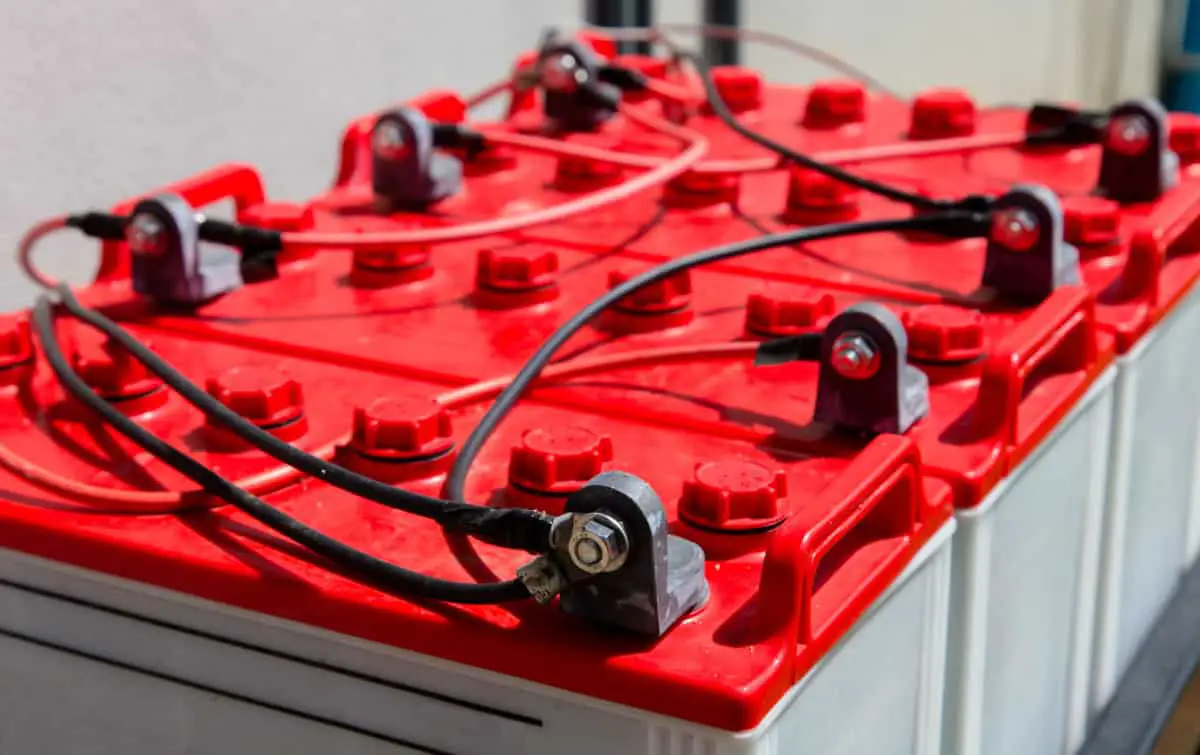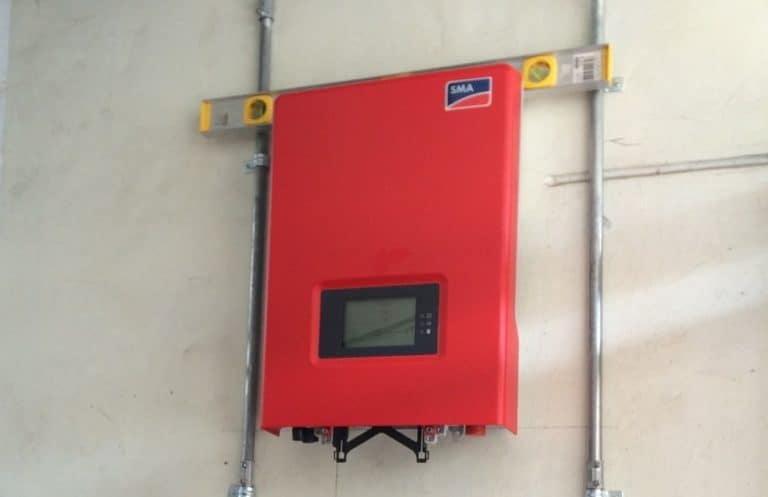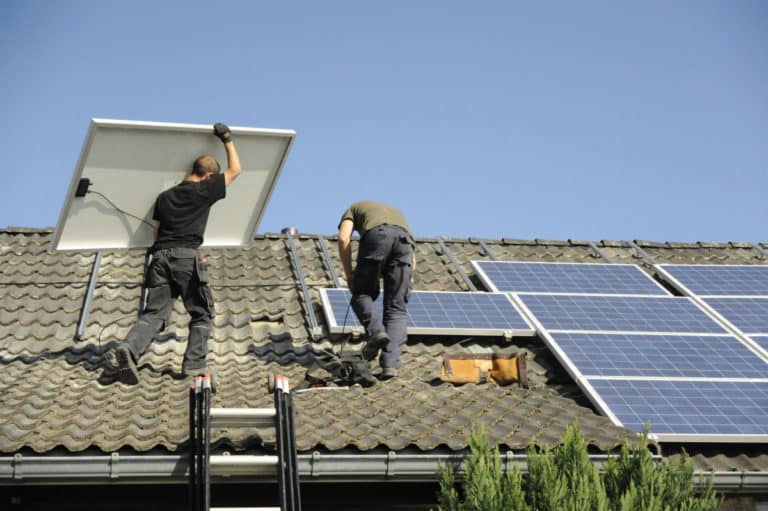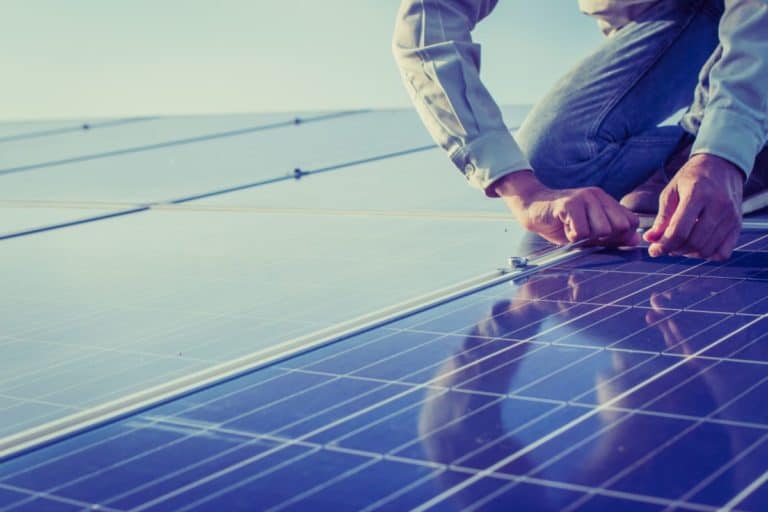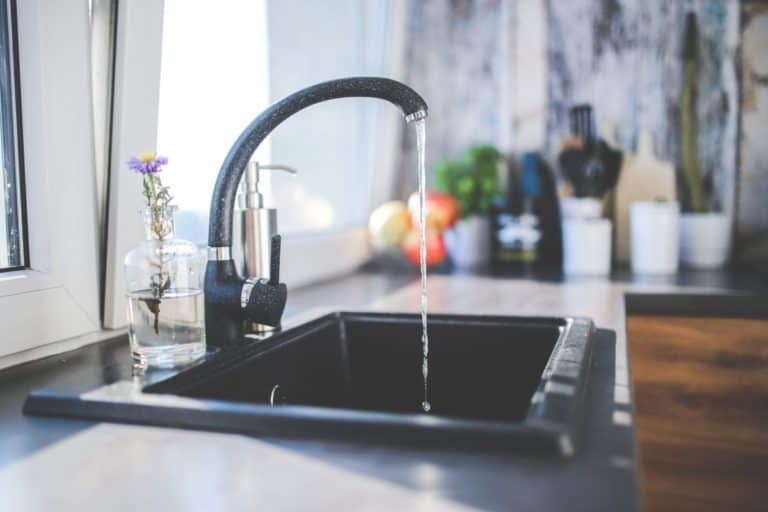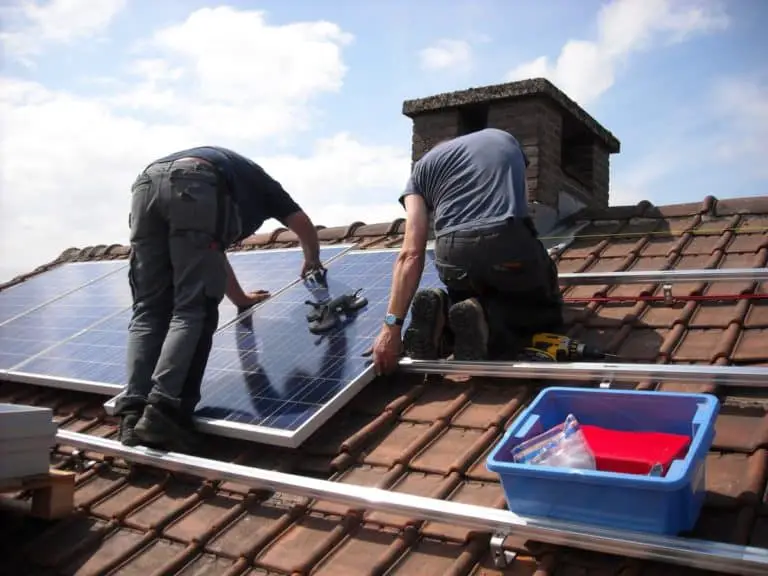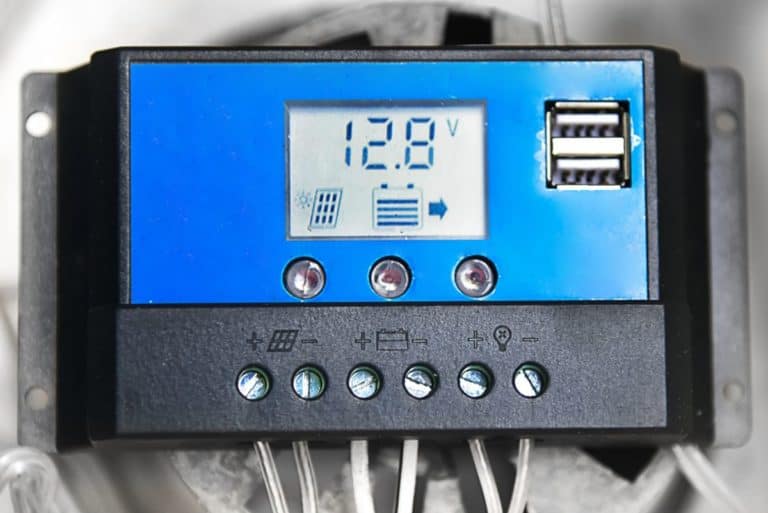What is the Best Battery for a Solar Power System?
When I first considered using an off-grid solar set up in my home, I found choosing a battery complicated and confusing. As a result, I researched everything I could find to get the most useful information.
The best battery for a solar power system is a lithium-Ion single unit storage system like the Tesla Powerwall 2. A single unit is efficient and can supply 10kWh or more. Other companies are now offering similar systems, including LG, Samsung, and Duracell.
What to look for when choosing a battery?
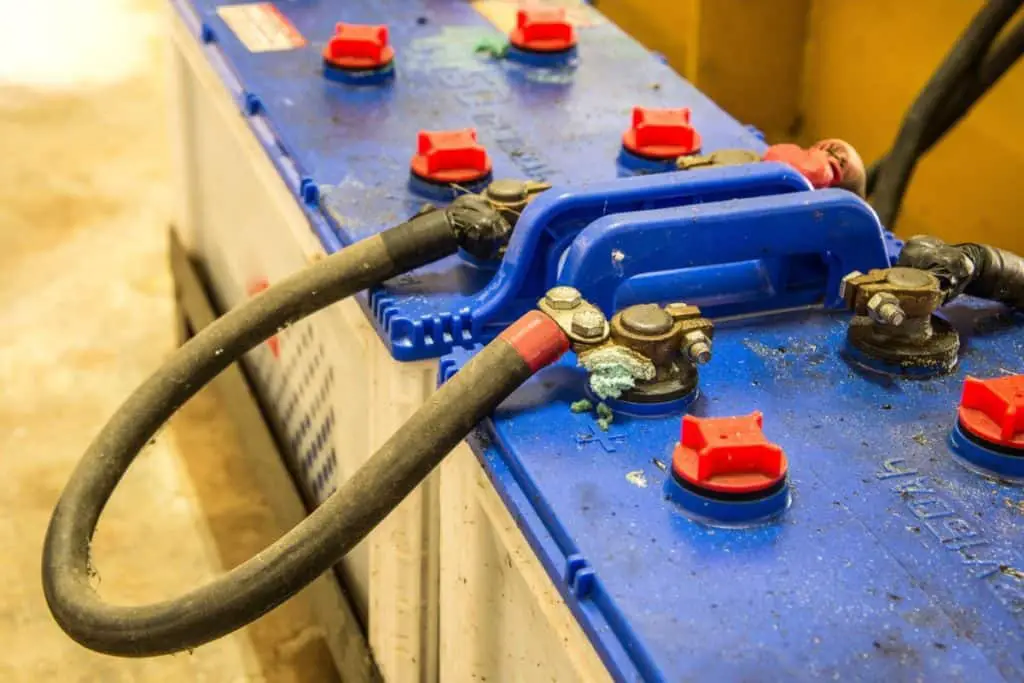
Solar batteries are essential if you want to be able to use any excess power produced by your solar system. The right battery will allow you to store energy for use at night or on overcast days.
There are lots of different types to choose from; the best battery is one that closely matches your set up and how you want to use it. When making your selection, you should consider each of these features:
Capacity and depth of discharge
The capacity is the total amount of electricity that a battery can hold when fully charged. A larger capacity means that it can run the items in your home for longer. However, the more of the total power you use each time, the shorter the life of the battery.
Many batteries should only be discharged to 50%; some people calculate their systems to only ever discharge up to 20%, leaving 80% in the battery. This can significantly increase the life expectancy of the cell.
When you choose a battery, the user information should display the amount that can be used (depth of discharge) for optimal performance. The larger it is, the more you can use without reducing the lifetime of the battery.
Power
The power of the battery tells you how much electricity is delivered at one moment. If you want to run several devices from one battery, you need to look for one with a higher power rating. The power is measured in kilowatts (kW).
Round trip efficiency
Every time you charge a battery, some of that charge is lost. As a result, the amount you can discharge from it will be slightly less than what you put in.
The better the efficiency of a battery, the less electricity is lost in each ’round trip.’ Batteries with excellent round trip efficiency can save significant amounts of power over time.
Life expectancy
The more you use a battery, the less charge it can hold. If you get a good quality battery and carefully follow the manufacturer’s instructions, it will last longer.
Many batteries come with a warranty; the length of the warranty will give you a good indication of how long it is expected to last before the charge it can hold drops below a designated level. However, if you use and store your battery correctly, there is a good chance it will last longer than the warranty.
Check out my recommendations for best solar power equipment.
How many types of batteries for solar are there?
There are two types of battery that are best suited for use in your solar set up:
Lead-acid
Lead-acid batteries have been around since the 19th century and still do a great job. They are most often used as car batteries, but they come in many different types.
They are often the cheapest option and can work very well. However, they can be heavier and have shorter lifespans than more modern designs.
Check out the MightyMax range of Lead-acid batteries at Home Depot.
Lithium-Ion
These are currently the most common batteries used in home solar systems. They can be expensive, but they are smaller and last longer than lead-acid batteries.
Solar batteries in the future
In the future, you may have more options to choose from. New technology such as saltwater batteries and flow batteries are in development and offer the promise of long-lasting batteries that can be easily recycled.
How many batteries do you need to run a house?
Since the number of homes using solar power systems has rapidly increased, solar battery technology has developed and good quality, solar specific batteries are easier to find. You can now find several batteries available that can reach up to 10kWh or beyond with a single unit.
You can create your own battery bank with several smaller batteries, but running your system from a single unit has many advantages. For example, you only have to maintain one battery; they are often compact and easy to store when they need replacing you don’t have different batteries aging at different rates.
How much do batteries for solar cost?
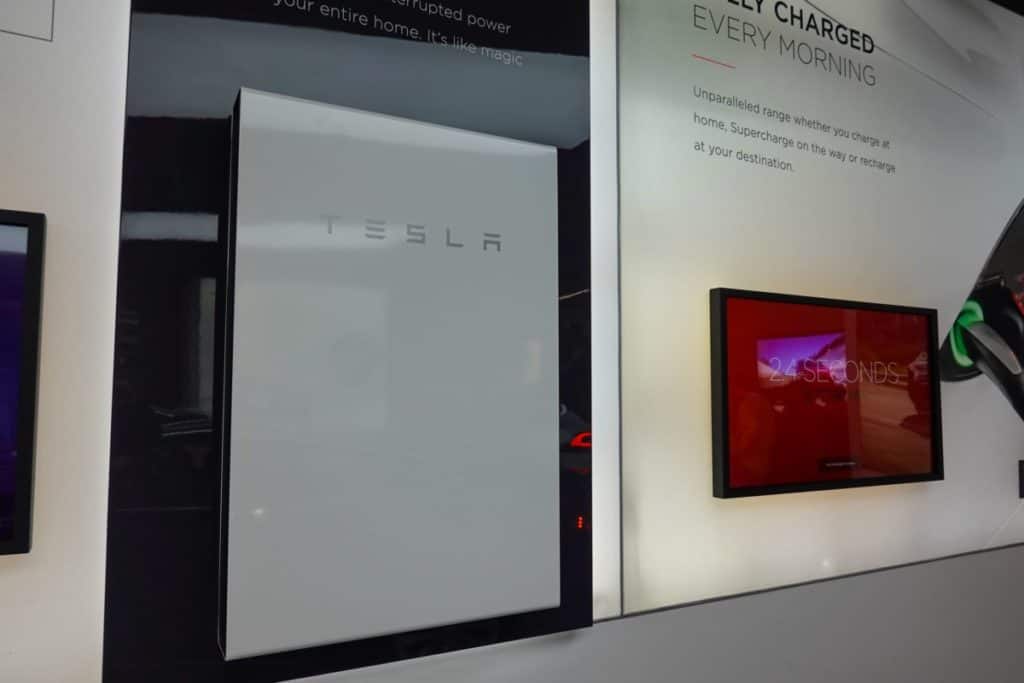
A single deep cycle 12v, 100 amp hours battery can cost between $150 and $400, but you will need to buy several depending on the power generated by your panels and how long you want to be able to provide backup electricity.
Single battery packs like the Tesla Powerwall 2 provide enough storage to back up a moderately sized home with one unit. The unit alone costs $7,600, but that can rise to $9,600 or more for a full installation. For that, you get one 13.5 kWh system, which is warrantied for ten years.
The LG Chem RESU 10H is a similar unit that provides a maximum power rating of 5kWh. A full system installation is priced between $9,000 and $13,000. The final cost depends on the overall installation and your individual setup.
As these all in one power banks become more popular more options will become available, and it will be easier to find those that suit a tighter budget. Despite the high initial price, in my opinion, a single unit solar storage system provides better overall value.
Can I use a car battery for a solar panel?
Car batteries are designed to provide the large burst of electricity needed to start a car. Their structure means that they are less suited to providing steady amounts of power over a more extended period.
If you did use a car battery to store solar energy, its life span would be short, and after two to three years, it would struggle to hold a charge. A deep-cycle battery is a better option for storing solar power because they are designed to deliver their charge over a more extended period. This type of battery could give you 15 years of use if properly stored and used.
Conclusion
With so many things to consider when buying a solar battery, it is no wonder that single unit systems are becoming so popular. They offer a quick and easy solution to what can be a complicated element of taking your home off the grid.
Related reading: Guide to off-grid solar inverters. How to choose an off-grid charge controller.
Check out my recommendations for equipment that will help you take your home off-grid.
My Off-Grid Product Recommendations
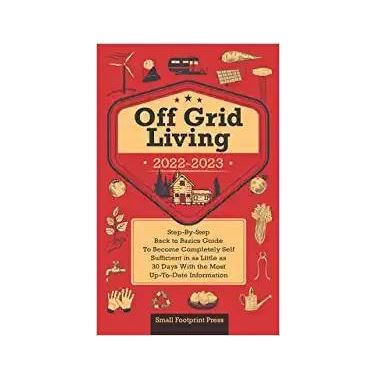
Useful Book: Off Grid Living 2022-2021 – This incredible step by step guide is a great read and gives you useful information about reaching self-sufficiency in just 30 days. Get the paperback on Amazon or read it free with a Kindle Unlimited subscription or listen to the audio version with Audible Plus membership.
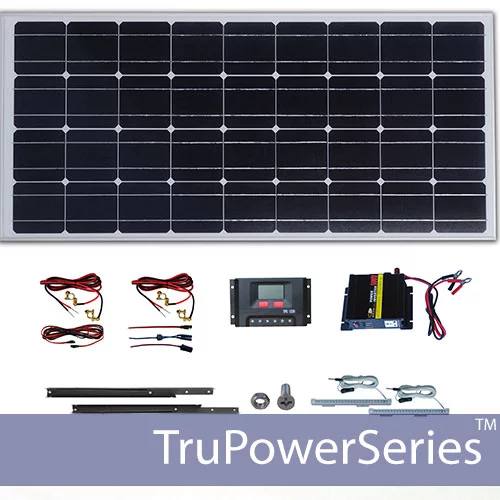
Small Solar Panel Systems: Silicon Solar – This is an excellent company that offers lots of products to get you started on your solar journey. Visit Silicon Solar.
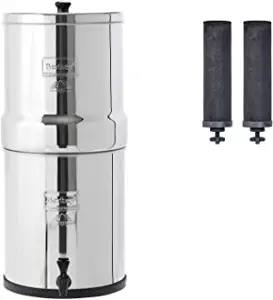
Family Water Filter: Big Berkey – For a fast, affordable water filter with no plumbing required, you can’t beat a Big Berkey gravity-fed filter like this one from Amazon.
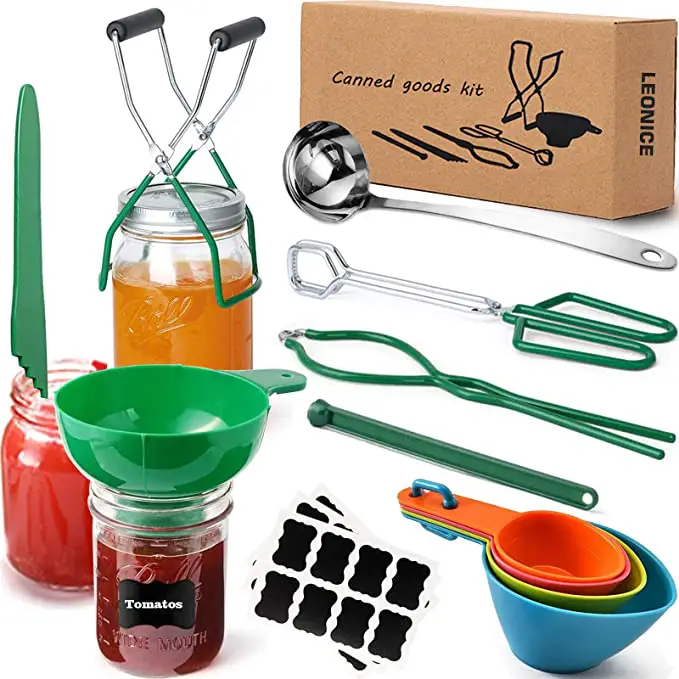
Canning Equipment – This canning starter kit, 22-quart Barton pressure canner and twelve-pack of Ball 16oz mason jars will help you preserve food as you work towards self-sufficiency.
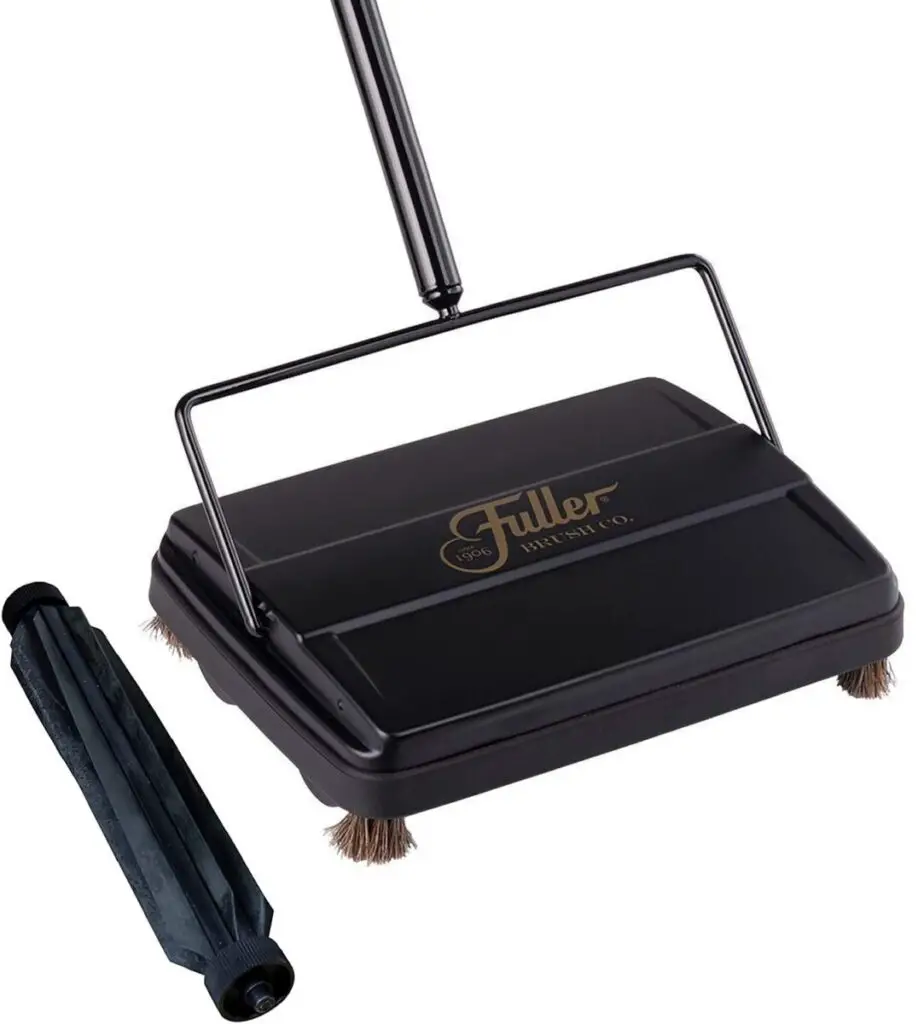
Cleaning: Fuller Carpet Sweeper –. This carpet sweeper is an ideal way to keep your home clean without using up your energy stores on vacuuming.

Handy Knife: Gerber Serrated Paraframe – This handy all-purpose knife is lightweight and ideal for all those little jobs around your home and garden.
